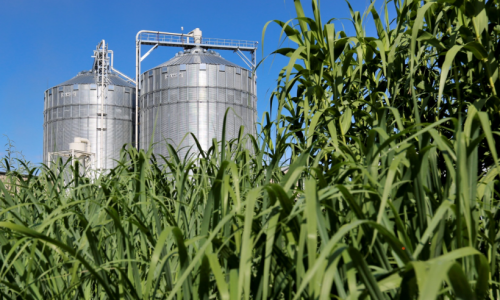The construction progress of mining company PT Amman Mineral Nusa Tenggara (AMNT) copper smelter has reached 47% as of October 2022. The smelter will produce 200,000 copper cathodes by the end of 2024, later than the original schedule of 2023.
“Amman Mineral’s smelter will start operating in 2024. The supply of copper raw materials [copper cathode] will be ready in 2025,” AMNT President Director Rachmat Makkasau said on October 12, 2022.
The global COVID-19 pandemic in the past two years and the Ukraine vs Russia war have hampered the construction of the smelter, he said. “However, we are optimistic that the construction process is continuing. We also believe the two big smelters in Indonesia will be completed by the end of 2024,” he added.
Makkasau explained that the development of smelter industry and the downstream industry were two different things. In the smelter industry, the company only provides raw materials, while in the development of downstream industry, the company should process the raw material into products.
“When we process [raw materials] into smelters, the cooper cathodes will then be processed further to downstream industry,” he said.
Read also: Indonesia’s downstream mineral industry ambitions still have a long way to go
When the supply of copper cathodes as raw materials from PT Freeport Indonesia (PTFI) and AMNT are ready in 2025, the domestic market will only absorb around 25% of the copper cathodes. The remaining 70% of the cathodes will be exported. “At the same time, the added value of the copper cathode is only 5% to 7%,” he said.
It means there will be oversupply of copper cathode for domestic market. It can be a problem but also an opportunity. In the future, copper will become a very important commodity for green technology.
“We know that nickel is needed for the electric car battery, but copper is important as well,” Makkasau said. “Basically, every electric vehicle needs 3 to 4 times copper than conventional cars. So there is the demand for copper in the future. Therefore, we encourage green technology for cars, power plants, etc.”
Boosting domestic market demand
Djoko Widajatno, Executive Director of the Indonesian Mining Association (IMA), said he had no idea who will absorb the copper cathodes when Freeport’s and AMNT’s smelters began operational. The copper downstream industry has not yet fully developed in Indonesia. Currently, no copper derivative or downstream industry in the country can consume copper cathode produced by PT Smelting in Gresik, East Java. Therefore, only 50% can be absorbed by the local market.
Freeport’s first smelting product was consumed only by 50% of the domestic market. There is no derivative industry for these products. By 2024, the company does not know which market will be able to absorb its new smelting products. Its new smelter will be operational for 20 years.
“The government should encourage domestic and foreign companies to consume copper. For example, they can use it for electronic goods, electricity cables and electric cars. They will need a large amount of copper because it is the most efficient conductor,” said PTFI spokesman Riza Pratama.









